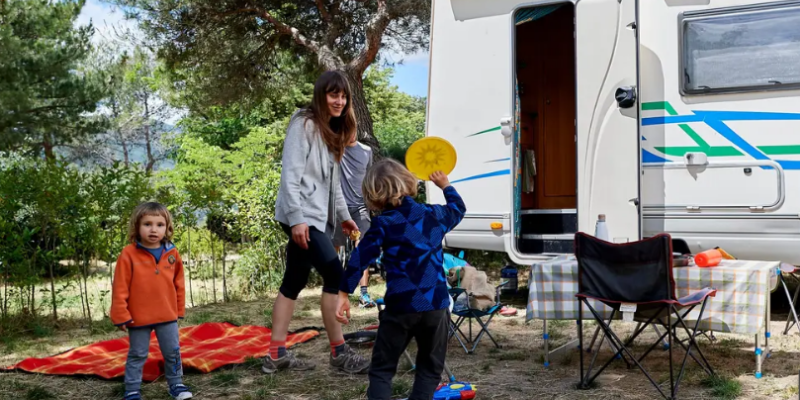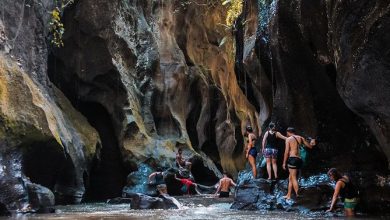
Everything You Need to Know Before Taking a Winter RV Camping Trip
RV camping trips during the summer months can be some of the most fun you’ll ever have. However, taking an RV camping trip in the winter can be a much different experience – and not necessarily in a good way. Whether you’re new to RV camping or just new to winter RV camping, there are many things you need to consider before setting out on your next expedition with your family and friends in tow, so visit Mr RV Expert for a complete guide about RV.
Here are some of the essential information you need to know before taking a winter RV camping trip this season.
How to prepare your RV for winter
With its freezing temps and frozen precipitation, winter is often an unwelcome visitor in most North America. That doesn’t mean you have to stay indoors, though. If you live in an area that sees regular snowfall, there are ways to enjoy your RV during its coldest months.
Here’s how to prepare your RV for winter.
- One crucial step to preparing your RV for winter travel is keeping it plugged into shore power when parked.
- When driving, ensure that all engine components—especially belts and hoses—are properly warm so they don’t freeze if running water freezes inside them.
- Your tires also need to be properly inflated, or else they might not handle ice well either.
What Else You Should Know About Winter RV Camping:
As with driving in general, driving on icy roads requires some extra care so you can avoid accidents on rough terrain or steep grades while getting where you want to go safely.
Tips about where to go in the winter
There’s no easy answer if you want to know where exactly is best for winter camping. Most campgrounds across North America close down between September and May, meaning you’ll have limited options if you wait too long.
If you decide that winter camping is right for your family, start researching campsites in late summer—even visiting some as a day trip before booking any reservations.
Please bring plenty of blankets and warm clothes: Quality matters more than quantity when it comes to warmth. Invest in high-quality items (like thick sleeping bags) that keep you warm when they’re wet rather than bulky synthetic items that will weigh you down on your trip or be too thin once they get wet.
Do’s and Don’ts of winter camping.
We may all have different reasons for heading outdoors, but there are some basic things we should all be doing to ensure that our trips are as safe and enjoyable as possible. Knowing how to camp safely is an important skill, from taking precautionary measures before leaving home to understanding how you’ll deal with emergencies while you’re out in your vehicle or on foot.
Here are some basic do’s and don’ts of winter camping.
- After all, winter is coming—and so are we! Take care of yourself and enjoy your time in nature; it’s cold enough without being careless.
- First of all, never go outside without wearing insulated clothing. Ideally, you’ll want to wear several layers that can protect you from both heat loss and wind.
- A couple of gloves will also help keep your hands warm during those colder moments—you can even use one pair for playing cards and another pair for driving if needed.
- Of course, proper footwear is essential (no flip-flops), although warm socks will help make boots more comfortable when temperatures drop.
Finally, remember that no matter how cold it gets, don’t forget about hydration! Be sure to drink plenty of water before heading out on your trip. There’s nothing worse than getting dehydrated while out in nature!
What you can learn from those who have done it before?
Even if you’re new to RV camping, you can learn quite a bit from those who have already taken winter trips. The biggest advantage of talking with someone who has experience is that they can give you tips on things they did right and wrong during their trip. This will help ensure your trip goes smoothly and safely.
These discussions are also valuable in another way:
They give you direct information on what not to do when planning your trip. Make sure you ask questions about how cold it was, if there were any storms or blizzards, etc., and take notes on their advice.
Other ways to keep warm when traveling
Here are some additional tips for staying warm in an RV.
- Bring extra blankets or sleeping bags.
- They take up less space than a conventional furnace, and you can use them for other things when not in your camper.
- Choose an area with electricity hookups so you can plug-in heaters and use your microwave.
- Avoid heating pads, which could easily malfunction if your power goes out while camping.
- Have more than one propane tank on hand; it’s dangerous to run out of fuel because propane is heavier than air and doesn’t dissipate into smaller areas as easily as other gases do.
- If possible, park near another RVer who has a generator hooked up. It’s easy to share gas that way.
Frequently Asked Questions
How cold is too cold for RV camping?
The temperature you need to be concerned with is the frost point. This number varies depending on your location and talking about water lines or air temperatures. In most areas, that’s around 40 degrees Fahrenheit, though in some cases, you may want to plan on something colder (such as much of Montana).
In general, it’s best to avoid sub-freezing temperatures if possible. If you’re stuck in an area where temperatures are too cold for camping, try looking into bus tours or museums. That way, you’ll be spending your time doing something warm and fun!
Can you camp in the winter in a camper?
While many people associate camping with warm, sunny days spent outdoors, it is possible to enjoy camping in your camper during those cold winter months. From packing for a chilly RV camping trip to setting up your camp, you can create an enjoyable experience that keeps you warm and dry while making memories in your camper.
This guide will give you everything you need to know before taking a winter RV camping trip. While many people associate camping with warm, sunny days spent outdoors, it is possible to enjoy camping in your camper during those cold winter months. Here you get a complete guide to avoiding camping mistakes at all costs.
From packing for a chilly camping trip to setting up your camp, you can create an enjoyable experience that keeps you warm and dry while making memories in your camper.
Is it safe to drive an RV in the winter?
Many RVs are built for year-round use, but driving in winter is different from summer and can be dangerous. If you plan on taking your RV out during freezing temperatures or snow, there are some extra steps you need to take before hitting the road.
Keep reading for tips on preparing your rig for winter, how to dress while driving and what safety precautions you should take while camping on ice. Also, keep an eye out for animals that may venture onto roads: They often follow fence lines into fields and along with wooded areas where they may not be visible—and especially at night when many of us don’t wear our glasses! … That said, I’d say it’s safe so long as one takes common-sense precautions.





